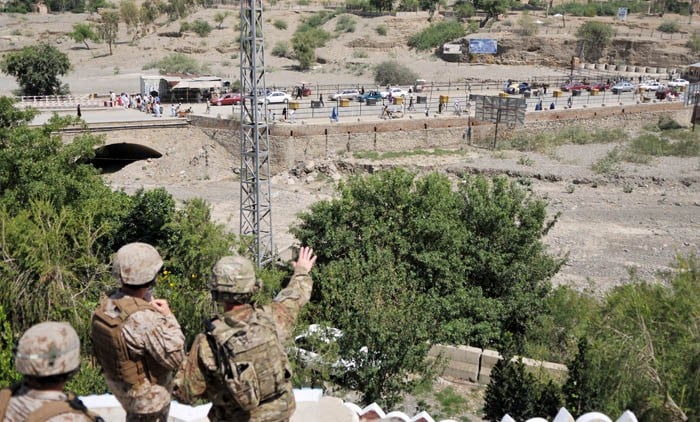
The recent Pak-Afghan clashes at Torkham have roots in the controversial Durand Line agreement

The Pak-Afghan border clashes at Torkham are could be attributed to Pakistan’s bid to construct a gate at Torkham and fence border in order to prevent Taliban from Afghanistan. But, it is not that simple. The mini border clash between Afghanistan and Pakistan at Torkham is only the latest salvo of nearly seven-decade long Afghan opposition to Durand Line agreement.
The Afghan opposition to fencing the border is deeply rooted in the colonial past when in November 1893, Afghan ruler Amir Abdur Rahman Khan and the British India’s representative Mortimer Durand clinched an agreement, which drew a boundary line between Afghanistan and British India. From the Afghan viewpoint, the agreement remains objectionable for a couple of reasons. For one, the agreement, "fixing the limit of" Afghanistan and government of India’s "spheres of influence" did not engender an international frontier but merely divided British sphere of influence from that of Afghans. Put differently, Abdur Rahman Khan did not cede Afghan areas to the British India permanently but politically.
Secondly, the agreement was signed under duress. The Afghan ruler, never a match for the colonial Britain, was made to sign the agreement for a period of 100 years. The consequences of this line of argument are twofold. First, in the wake of the disintegration of British Empire, the Durand Line agreement became null and void because it was an agreement between British India and Afghanistan and not between Pakistan and Afghanistan. Secondly, if the agreement remained there even post partition, it expired in 1993 upon the completion of 100 years.
The second main argument against Durand Line agreement is embedded in nationalistic sentiments. The line is a colonial imposition that arbitrarily keeps dividing one nation, Pashtun, into two -- Afghanistan and Pakistan. For sure, Afghan claims to Pashtun populated areas of Pakistan are irredentist. Although the present day Pakistan was once a part of the late 18th century Afghan Durrani Empire, Afghan’s claims to the Pashtun populated areas of Pakistan only is because Pashtuns are, by Afghan state conception, Afghans.
As media reports suggest, Pakistan is fencing the border at Torkham and constructing gate there well into its own territory. Why should Afghanistan object to it? For Afghanistan, accepting Pakistan’s fencing of the border or erecting a gate at Torkham amounts to de facto recognition of the Durand Line as an international frontier.
Read also: Bordering on conflict
On the other hand, from Pakistan’s viewpoint, Durand Line is an established frontier or a border between two sovereign states. Pakistan’s bid to manage its border with Afghanistan is a drive to prevent probable terrorists from Afghanistan to end up in Pakistan. But the question is, will gate construction at the border or fencing parts of border will prevent alleged Taliban terror from Afghanistan? Obviously, the answer is in the negative until and unless Afghanistan and Pakistan treat Taliban of all hues as the common enemy of the two states.
Regulating the 2200-km long porous Pak-Afghan border is too big a challenge for Pakistan to deal with it single handedly. Taliban are a trans-border phenomenon and thwarting their terror requires trans-border efforts. This calls for Pak-Afghan collective response to terrorism. Pakistan should impress upon Afghanistan that its main concern is the refuge of bad Taliban, who are Pakistanis, in Afghanistan. Similarly, Pakistan should end any alleged discrimination between good and bad Taliban because this dichotomy has been wreaking havoc upon us for more than a decade now.
As far fencing of border is concerned, Pakistan and Afghanistan should evolve a consensus on the matter. Any cost-benefit analysis will necessitate that Pakistan, in its regional competition for influence with India, would be strengthened if it has Afghanistan on its side than losing it to India. In the present context, Afghanistan stands for soft border. Under the current circumstances, will Islamabad try to stop terror through other means? Rationality demands that it should!